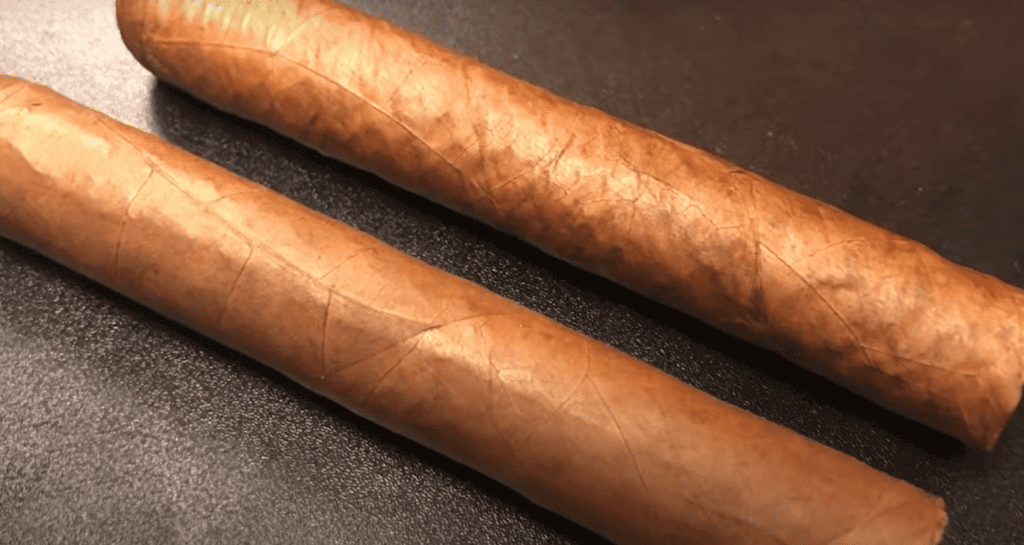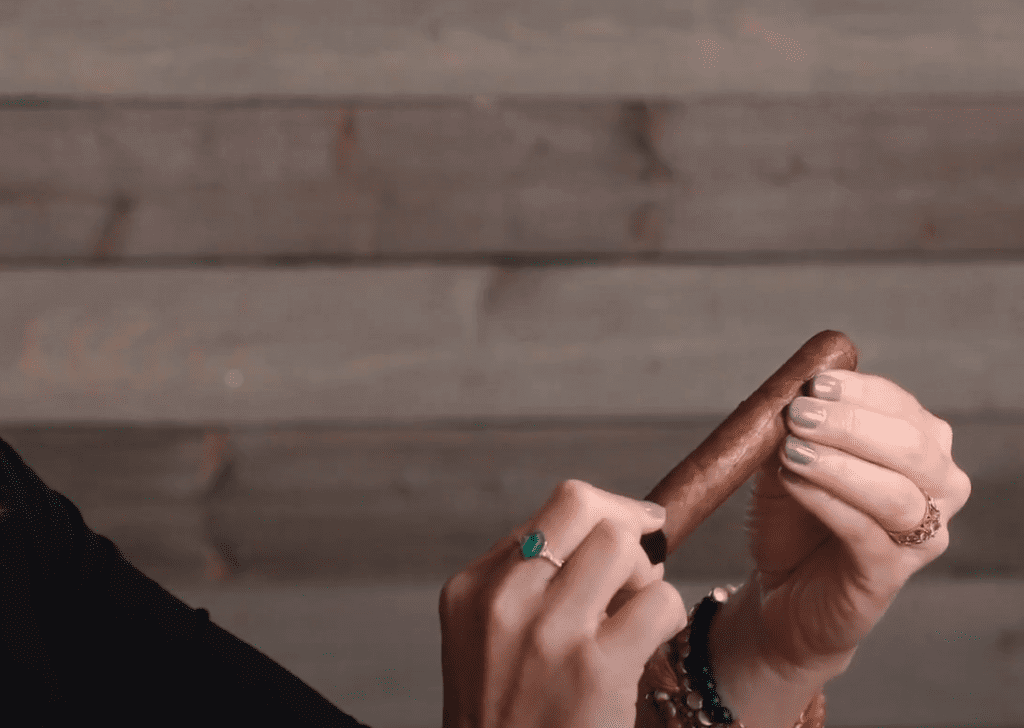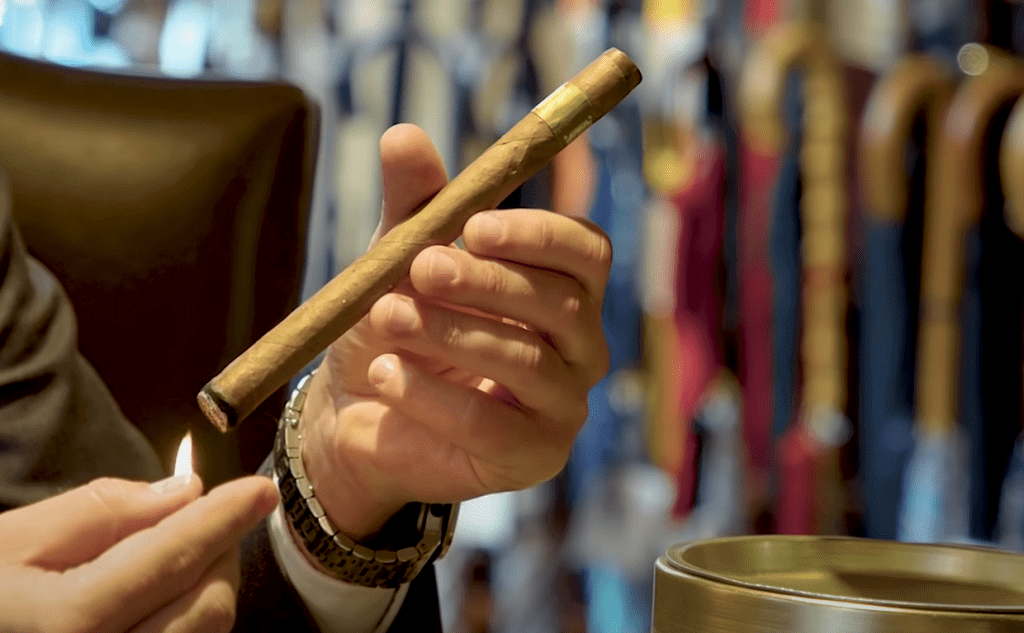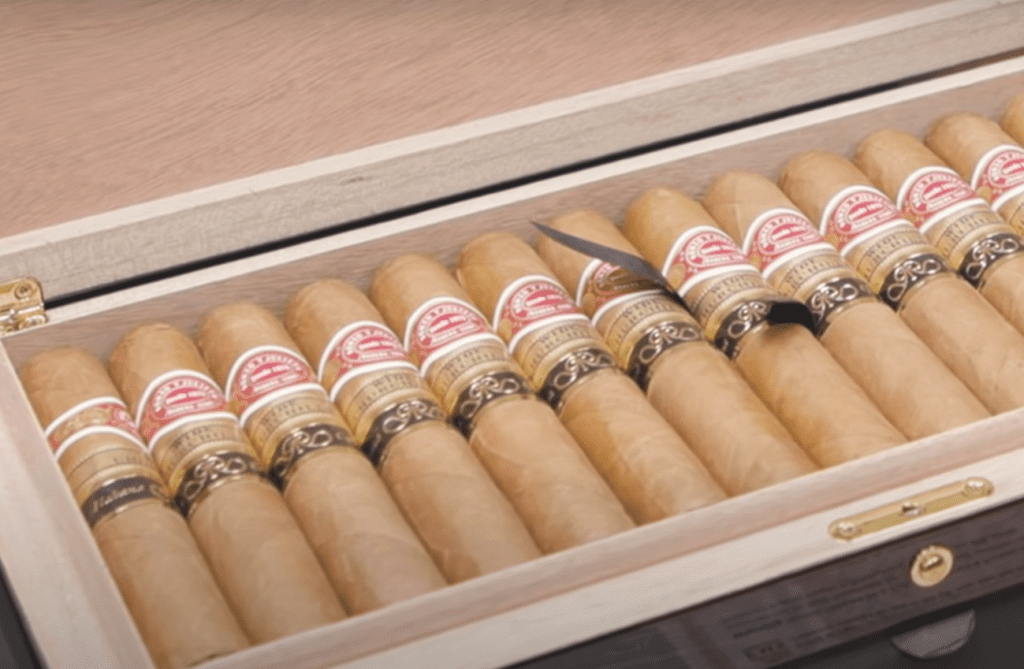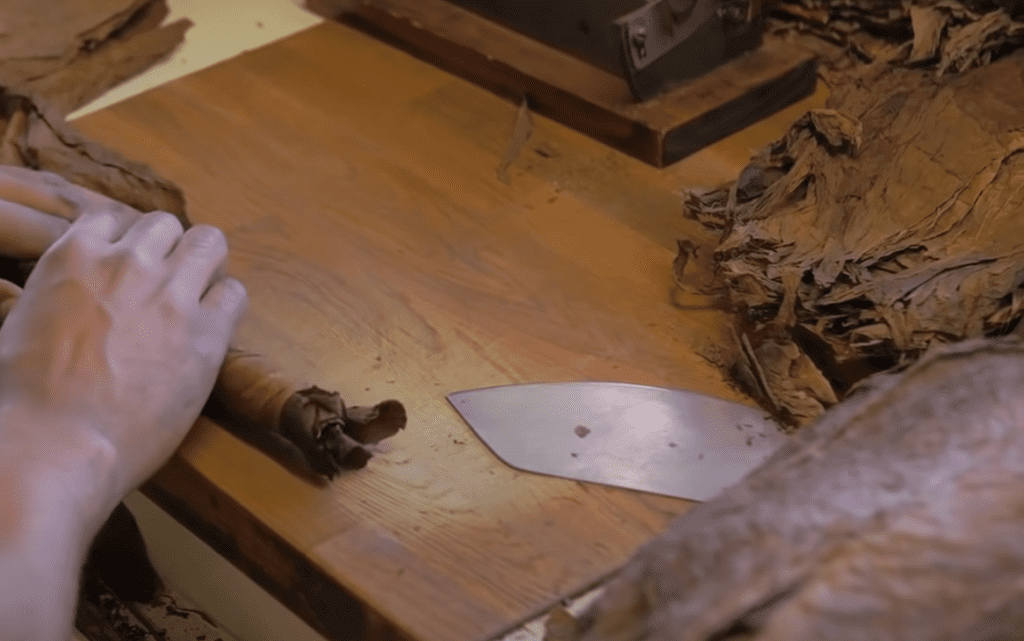How can you tell if a cigar is dry? How can you fix a dry cigar quickly?
It isn’t a secret that people all over the world enjoy smoking cigars- and for good reason! It’s one of the most relaxing and enjoyable hobbies a person can have. However, properly storing a cigar with a solid humidor is just as important as smoking it. If you aren’t careful, you might end up wasting your hard earned cash smoking a cigar that is dried out and all around unpleasant.
Here are a few things to look for that will help you decide if your cigar is dried out:
- The first thing you’ll notice is that the cigar feels brittle and papery. This is because the tobacco inside the cigar has dried out and lost its moisture;
- The second thing you’ll notice is that the flavor of the cigar will be harsh and unpleasant. This is because tobacco has lost its sweetness and richness;
- Finally, you may notice that the cigar burns quickly and unevenly. This is because there is less moisture in the cigar, which makes it burn faster;
If you notice any of these things, it’s a good idea to stop smoking that stick. It may be too late for this smoke, but there may still be time to save any other cigars that have dried out!
In the following, we will discuss how to tell if a cigar is dry, and provide some tips on how to avoid this problem.[1] We’ll also throw in a few ways to fix a dry cigar quickly!
Related: Our Top 10 Picks for Cigar Humidors on Amazon
Table of Contents
Dangers Of Low Moisture in a Cigar
Cigars are hygroscopic, which means they take in and retain moisture from their surroundings. They also lose moisture at an accelerated rate. A cigar left out in a room without air conditioning or direct sunlight will dry up in less than a day if not kept moist.
Tobacconists often rotate their stock to keep cigars from drying out. If you live in a dry climate, it’s important to take extra care of your cigars.
A cigar left out in the sun, wind, or hot weather will dry out in a few hours. If a cigar dries up completely, all of the flavor chemicals inside will evaporate, and most of the cigar’s taste will be lost. Although some of the flavors may be salvaged by keeping them at high humidity levels for an extended period of time, it is best to avoid letting your cigars get too dry [2].
How can you tell if a cigar is dried out? When a cigar dries out, it will become much harder and more brittle. This makes it more difficult to draw smoke through the cigar, and increases the chances of the cigar breaking or cracking when you try to smoke it. In addition, a dry cigar will burn hotter and faster than a properly moistened one, making for a less pleasant smoking experience.
The humidity level in a cigar also contributes to an effective burn. Cigars are designed to burn slowly and evenly, at low temperatures. Slow-burning allows the components of the tobacco to combine, allowing you to appreciate all of its nuances and taste. Dry cigars burn rapidly and fiercely. The increased smoke makes it unpleasant and harsh, robbing the fragrance of its delicate complexity and causing the essential oils to evaporate.
Dangers Of Excess Moisture in a Cigar
Damp cigars are caused by keeping or exposing cigars to excessive humidity, which is usually anything greater than 70-72 percent humidity, at which point cigars begin absorbing rather than losing moisture to the surrounding air. When the temperature is closest to the dew point (the temperature at which water vapor condenses into liquid), humidity is highest in the early hours of the morning.
If cigars are kept outside at this time, they will absorb moisture and become damp. Damp cigars are difficult to light and keep lit, and produce large amounts of thick smoke that is unpleasant to smell and taste. In addition, the high moisture content of the cigar will cause it to burn unevenly, resulting in an unpleasant smoking experience.
The humidity level varies in accordance with the seasons. Humidity levels differ significantly based on location. In Las Vegas, the average humidity is only 30%, whereas it’s 76 percent in New Orleans.
During the summer, the humidity there may reach 90%. Inclement weather is also a danger. Cigars are susceptible to moisture absorption if you’re outside when it rains heavily. Even if you’re under an awning, cigars absorb moisture quickly during heavy rain. In as little as five minutes of rain, even a decent cigar can be ruined.
When cigars become wet, the tobacco leaves expand and it becomes difficult to draw smoke through them. Excessive moisture also has an impact on the burn rate. Rather than slowing down, one side of the cigar is more prone to burning faster than the other, a condition known as “tunneling”.
A consistent burn is critical because most cigars contain more than one type of tobacco, which is usually dispersed across the cigar in layers to add taste. Cigars can start out light and become full, earthy, nutty, or spicy as they’re smoked further down the cigar. Your draw will get uneven when tunneling occurs. When flavors are combined that weren’t intended to or one tobacco’s flavor overwhelms the others, you get a bland smoke with no complexity.
A moist cigar produces considerably more smoke than one that is properly wet. The thicker smoke not only clings to you longer, polluting your clothes, but it also overpowers your sense of smell. A great smoke relies as much on your nose as it does on your taste buds.
The Signs Of a Dry Cigar
Dry cigars are unpleasant, unsavory, and unappealing. They frequently flake apart or unwind as a result of their lack of moisture, which causes them to burn more quickly. When a cigar dries out, its flavor, construction, and performance are jeopardized. You can dehumidify a dry cigar and restore its tendency to burn evenly. However, you cannot recreate the original flavor [3].
Premium tobacco goes through several months, if not years, of fermentation and aging before it is shaped into a cigar.
When a cigar is dried out, the natural oils that contribute so much to its flavor and fragrance are lost. When you rehydrate a dry cigar, these natural oils do not return. That does not imply that a re-humidified cigar will be unpleasant; nevertheless, it will not taste as the manufacturer intended.
Regardless of whether you love the taste, it’s worth revisiting dry cigars to see how they smoke after being re-humidified rather than tossing them away.
With your left hand, hold the cigar between the thumb and index finger of both hands. Then apply modest pressure to the cigar. It’s still viable if the cigar has a little give but rebounds when you remove the strain after a while.
Strongly pressing on a cigar that is not damp will reveal whether it has been dried out. A dried out cigar will be hard as a rock.
To preserve the wrapper, don’t push it down excessively or apply more pressure. A dry cigar can still be kept, but cracking the wrapping is no longer possible.
Dry cigars are a common problem for cigar smokers.
There are several ways to tell if a cigar is dry:
- The cigar feels light or papery;
- The cigar cracks or flakes when you bend it;
- The cigar burns quickly and hot;
- The cigar produces little smoke;
- The ash crumbles easily;
If you notice any of these signs, your cigar is probably dry.
Related: The Best Cigars Gifts for the Smoker in Your Life
What To Do If Your Cigars Have Dried Out
The Quarter Turn Method
Place the box on a flat surface and slowly open it up, exposing it to humidity in a cellar or other damp environment for about a week (longer if the cigars are really dry).
The Ziplock Bag Method
Insert the box of cigars into a large ziplock bag with small holes. Place the bag within a larger ziplock bag and seal it. Insert a somewhat moist sponge into the second bag and close it. Every few days, as before, rotate the cigars from top to bottom and side to side to ensure uniform humidity.
The Damp Towel Method
This is the quickest way to dehumidify cigars, but it can also lead to mold if not done correctly. Wet a towel with distilled water and wring it out until it’s damp, not dripping wet. Place the damp towel over the cigars in the box so that they’re touching it, then close the lid and let them sit for 12 hours.
Remove the towel and check the cigars. If they’re still dry, repeat the process.
For two weeks, wrap the shut cigar box in a damp towel.
The Plastic Container Method
A good hygrometer is required. Place the hygrometer and cigars in an airtight, transparent container so you can check the relative humidity (RH) without opening the container. Read the RH after a few hours.
Using a humidifier gadget and placing a little water (+/- a teaspoon) on the sponge, put it in the container. Keep it closed until needed again. Repeat every 24 hours until 70% RH is reached.
After you’ve reached this stage, keep it going by adding water as needed for 2 or 3 weeks. Never let the RH drop below 65%, and avoid exceeding 75% if possible. Keep the container in a cool location out of direct light and heat during this procedure.
The Dry Humidor Method
Allow a week for the cigars to rest in a humidor that hasn’t been recently charged. Then, half-fill the humidifier and let the cigars rest for a week before fully charging it.
The most important thing to remember when reviving dry cigars is to be patient. Do not try to rush the process by increasing the humidity too much, too quickly. This will only lead to problems down the road. Take your time, and your cigars will thank you for it!
The Hot Shower Method
This is a good way to jump-start the re-humidification process. Hang the cigars in a bathroom while you take a hot shower. The steam will help to rehydrate your cigars.
While you take a hot shower, place the open cigar box in the bathroom (if necessary, close the box to retain moisture). After you’ve finished your shower, seal the box and keep the moisture inside. Every 2-3 days, rotate the cigars. You may store cigars in a properly maintained humidor after two weeks of rotating them every two or three days.
If you’ve tried one or more of these methods and your cigars are still dry, then it’s time to give up and move on. There’s no sense in trying to salvage a cigar that’s too far gone – it’ll just end up being a waste of time and money.
How Do You Rehydrate A Dry Cigar
With A Humidor
If you have a humidor, the process is pretty simple. All you need to do is take your dry cigar and place it in the humidor with a damp sponge or piece of cloth. Make sure that the sponge or cloth is not too wet, as this can cause the cigar to mold. Then, close the humidor and wait for 24-48 hours. After this time, your cigar should be rehydrated and ready to smoke!
Without A Humidor
Another method is to place your dry cigars in a glass jar with a damp sponge or piece of cloth. Once again, make sure that the sponge or cloth is not too wet, as this can cause the cigar to mold. Then, close the jar and wait for 24-48 hours. After this time, your cigar should be rehydrated and ready to smoke!
Whichever method you choose, make sure that you check on your cigars after 24 hours to make sure that they are not too moist. If they are, simply remove the sponge or cloth and allow the cigars to dry out for a bit longer.
FAQ
Can I smoke a dry cigar?
Yes, you can smoke a dry cigar. However, it will not taste as good as a properly humidified cigar. A dry cigar will also burn hotter and faster than a well-humidified cigar.
What does a dried-out cigar taste like?
A dry cigar may be bitter and have a more offensive odor. The cigar may also burn hot and be hard to draw.
How can you tell if a cigar is moist?
When a cigar is too damp, it’s difficult to light, the edges burn faster than the center, and the wrapper might crack or come undone as you smoke it. The ideal conditions for storing your cigars are 70% humidity (relative humidity) and 70°F [5].
How long does it take a cigar to dry?
It can take anywhere from a few days to a couple of weeks for a cigar to dry out completely. However, you’ll likely notice some changes in the cigar after just a day or two of drying. The wrapper may become brittle and start to crack, and the flavor of the cigar will become more harsh and bitter.
Can dried-out cigars be rehydrated?
Yes, cigars can and should be rehydrated. Despite your best efforts to preserve your cigars, they may dry out and you’ll need a solution to save them. Perhaps you were in a hurry and forgot to rehydrate your humidor or perhaps you left a cigar in your car that required replenishing [6].
Why is my cigar soft?
There are a few reasons why your cigar may be soft.
The most common reason is that the cigar was not properly humidified before smoking:
- If the cigar is too dry, it will not draw properly and will burn hot and harsh;
- Another possible reason for a soft cigar is that it was stored in an environment that was too humid. This can cause the tobacco to expand and become softer;
- Finally, if you bite down on the cigar while smoking, this can also cause it to become softer;
Is 67 humidity ok for cigars?
If the humidity in your cigar room is too low, your cigars will become dry. This can happen if the relative humidity (RH) falls below 65%. Cigars that are too dry will burn hot and taste harsh. You may also notice that the wrapper becomes brittle and starts to peel.
To prevent your cigars from drying out, you should store them in a humidor at 65-70% RH. If you don’t have a humidor, you can use a plastic freezer bag with a damp sponge or paper towel inside. Just make sure to punch some holes in the bag so that the cigars can breathe.
Should a cigar be hard or soft?
The answer is – it depends. If you’re a novice smoker, you might think that all cigars should be hard as a rock. After all, isn’t that how they’re supposed to look? Well, not necessarily. In fact, many experienced cigar smokers prefer their cigars to be on the softer side.
Is 80 percent humidity too high for cigars?
In the 65-75% range, cigars may be kept for extended periods of time without worry. However, if the humidity level rises above 80%, caution is required. The cigar can start to decay and mold in this scenario [7].
If the humidity level is too low, the cigar will dry out. This causes the cigar to become brittle and can make it difficult to smoke.
The ideal range for storing cigars is between 65% and 75% humidity.
Useful Video: How to tell if your cigar is too dry
References:


